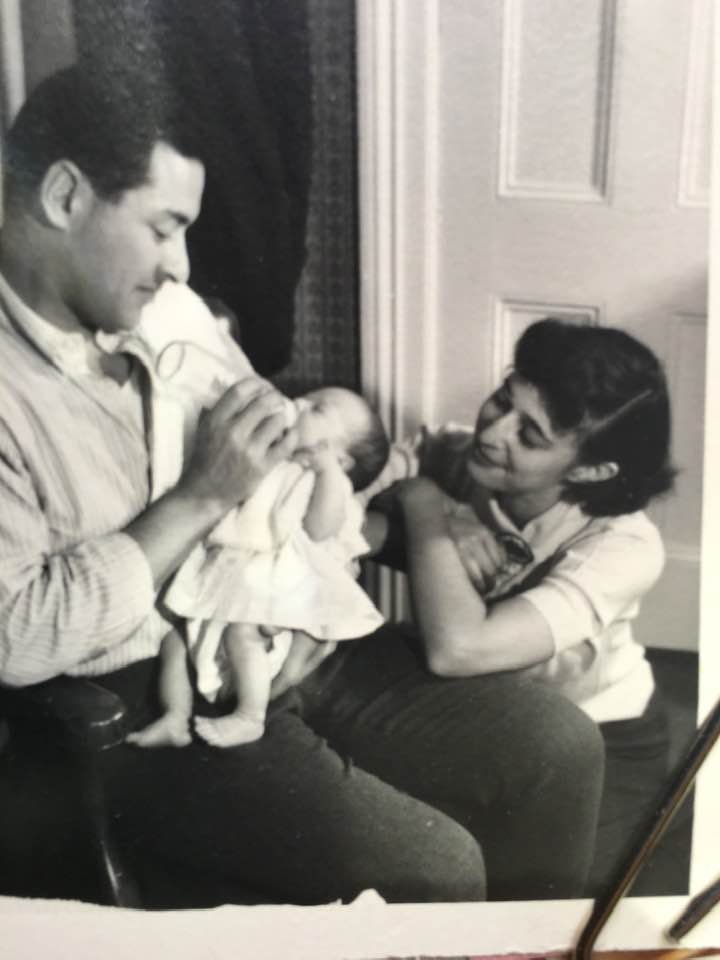
Support For The LGBTQ+ Community Saves Lives
YOU HAVE THE POWER TO SAVE SOMEONE’S LIFE- JUST BY USING YOUR WORDS. THIS IS HOW YOU SAVE LGBTQ+ YOUTH AND ADULTS.... BY PROVIDING LOVE…ACCEPTANCE…KINDNESS...SUPPORT...NON-JUDGEMENT...LISTENING AND HELPING THEM FEEL HEARD...USING PRONOUNS THE PERSON IDENTIFIES WITH...HELPING SOMEONE GAIN ACCESS TO RESOURCES...HELPING SOMEONE GAIN ACCESS TO GOOD MENTAL HEALTH ...BE AN ALLY...BE A FRIEND...DONT BE A BYSTANDER…STAND UP FOR SOMEONE WHO IS BEING BULLIED...SUPPORT LAWS TO PROTECT OUR LGBTQ+ YOUTH AND ADULTS. JUST BE A GOOD HUMAN.


Coping After the Loss of a Loved One to Suicide
According to the CDC, In 2020, in the United States:
*12.2 million adults (over 18) seriously thought about suicide. In addition, 3.2 million adults made a plan, and 1.2 million adults attempted suicide.
*45,979 people died by suicide, one death every 11 minutes.
*For every suicide death, four people of hospitalized for a suicide attempt, eight people visited the emergency room because of suicide, 27 people self-report suicide attempts, and 275 people "seriously considered suicide."

Coping with the Effects of Estrangement from Adult Children / Grandchildren
It can be devastating for all parties involved. Often, but not always, the grandchildren are estranged from their grandparents because of the estrangement of the parent and adult child. The person that desires a connection, often feels helpless, as they wait for the other person to connect. All parties are often suffering, though this blog focuses primarily on the person that has not made the decision to be alienated, I must recognize that the person that made that decision usually does so because they are feeling a myriad of emotions such as emotional pain, anger, or a need to protect themselves. There may be a history of abuse or history of alienation from the other parent since the adult child’s childhood.

What Trauma Therapy is right for you?
Trauma affects our mental health, our physical health, our relationships, our self-esteem, and how we perceive and react to the world around us. Trauma responses such as fight, flight, and freeze, are our body’s way to protect ourselves from danger and keep us safe. So, our bodies are acting the way they are supposed to when they feel danger. The problem is that our bodies may think they are in a dangerous situation when there is none. So instead of looking at our trauma responses as dysfunctional, I see them as potentially functional but at the wrong time.

Postpartum psychosis
Postpartum psychosis, sometimes called postnatal psychosis, or puerperal psychosis, is a perinatal mental disorder that has a biological trigger that occurs after childbirth, usually within two weeks, and often lasts for months, even years. It is a dangerous mental health condition where a new mother loses her sense of reality, suffers from hallucinations, mood changes, delusions, disorganized thinking, and paranoia, and may harm herself and her baby.

Intergenerational Coping
For the purpose of this blog, I will concentrate on the influences of family and how we can pass on trauma and coping patterns, which can affect generation after generation until addressed and healed. Important components of this construct include how a mother feels while she is pregnant, how a caregiver reacts to their child, and how family stories are often adopted by family members who never experienced them directly, as their own. Our accumulative truth, the way we understand the world and interact, can be passed to us by our ancestors and passed down through generations by storytelling, direct observation, and treatment over time.

Understanding the Cheating Narcissist
Not every narcissist will cheat, and not every cheater is a narcissist, but when a narcissist cheats, they often feel entitled, lack remorse, and will not change.
It is not the victim’s fault, and they will likely cheat again.
This blog may be painful for a partner of a narcissist to read. Understanding that their narcissistic partner is unable to love them (or anyone) and that they do not care about their feelings and will act accordingly is hurtful. I am sorry for any pain this blog will cause. Understanding a narcissist’s motivation to cheat allows the victim to make educated decisions and not blame themselves, which can help heal.

Signs of Hidden Narcissistic Abuse
It often takes distance and education on narcissistic abuse for someone to understand what abuse has occurred in their relationships. In addition, writing in a journal, telling their story to others, and getting help from mental health professionals can also assist in healing. Please do not blame yourself for being a victim. A narcissist can manipulate and abuse anyone by slowly breaking them down with their tactics. No one is immune from their abuse and manipulations. I have been a psychotherapist since 1988, and I was not immune. They can be “master manipulators,” and their victim comes to the relationship with their vulnerabilities which a narcissist will use. Because they lack empathy, and their goal is narcissistic supply, there are no limits.

Let’s Talk Anxiety
Why do people feel anxious? Genetics, brain chemistry, medical conditions, drug use, and environmental stressors such as childhood and adult trauma which can be triggered, causing anxiety. Certain risk factors that may increase a person’s chance of having an anxiety disorder; if the person was diagnosed with other mental health disorders such as depression, childhood abuse, childhood trauma, adult trauma, medical illnesses, substance abuse, and low self-esteem.

You Can Never Get Time Back Again And Other Jessica Truths
After 58-plus years of living and learning, not fully living and learning, learning from my hospice patients and others, I have come up with some thoughts on life.
1. Always be open to changing your mind. Continue to learn, grow, and be receptive to the possibility of thinking differently.
2. You will NEVER get time back again.

Why Do People Stay in Toxic Relationships?
How do people who are successful in many areas of their lives find themselves stuck in toxic relationships? They may see the red flags, feel something is wrong, and listen to their friends telling them to get out, but still feel paralyzed to leave. They get up every day and take care of their children, and their partners, they are successful at work, have good friendships, and can enjoy many aspects of their lives, but in their homes, they are often unhappy and in survival mode.

Holidays and Mental Health: Blog Series Part 3:
I want empathy and understanding for my ups and downs. I want my feelings validated. Please know I can’t control my emotionsnow. I don’t even understand them. I’ve never been through this before, at least not with this person. All I want to do is go back in time and have my mother, father, spouse, partner, friend, child, sibling, pet, boss, and all others that left me by death be by my side during this holiday.


Holidays and Mental Health: Blog Series Part 1
The holiday season can be joyful for many and, for others, a time of stress, depression, and anxiety.
According to the American Psychological Association, 38% of people say they are stressed during the holidays and only 8% say they feel happier. (APA December 18,2018) According to a Healthline survey; 65% of GenXers, 62% of baby boomers and 61% of millennials reportedstress during this time. Bottom line, holidays can be stressful.
I believe there is so much pressure to feel and act elated that not feeling so makes it difficult to admit the truth and ask for help. You may feel shame or that something is wrong with you. You may not want to be “Debbie Downer.” You may believe that everyone around you is gleeful, but no one knows really knows what is going on inside another person. Please ask for help and talk about your feelings. Contact a professional if you do not want to share your feelings with someone you know.

Understanding The Narcissist Can Set You Free
You are powerless to change the narcissist, but with the knowledge you have the power to make healthier choices for yourself. The goal of this series is to help you understand the narcissist to help you avoid a relationship with a narcissist, navigate a relationship with a narcissist, and to heal after a relationship with a narcissist. In this blog, I will discuss the narcissist’s attempt to manipulatetheir victim by future faking and hoovering during various stages of the relationship. I will also discuss how a victim of a narcissistic relationship can use the method of gray rock to protect themselves.

Understanding the Narcissist Can Set You Free
My goal with this series is to educate people about narcissistic relationships so that they can avoid entering one, understand how to navigate one, and help a survivor of a narcissistic relationship comprehend what they experienced to assist in healing. Part 1 was about the covert narcissist, Part 2 was about the overt narcissist, and Part 3 was about the malignant narcissist. In this blog, I will discuss three terms that are often used when discussing a narcissist.

Understanding the Narcissist Can Set You Free
Narcissism is on a spectrum. Malignant narcissism is an extreme form of narcissism and can be difficult to distinguish between a malignant narcissist and a sociopath. In helping to make that distinction, though, Darlene Lancer, JD,LMFT (article in Psychology Today, January 6, 2018) wrote, “sociopaths are more cunning and manipulative than narcissists because their ego isn’t always at stake.” Sociopaths just don’t care. The narcissist cares what others think.

Understanding the Narcissist Can Set You Free
Today, I am going to discuss the overt narcissist (also called the grandiose narcissist and agentic narcissist,) who are much more visible and easier to detect than to covert narcissist. People often think of the overt narcissist when they think of a narcissist.

DISCLAIMER:
The contents of this website; blog, video, articles, media, book, references, are ONLY for informational and entertainment purposes. It is NOT intended as a psychological service, diagnostic tool, medical treatment, personal advice, counseling, determination of risk and should not be used as a substitute for treatment by psychological or medical services.
Please seek consultation by appropriate healthcare provider. Call 911 if emergency. Call National Suicidal Prevention Hotline 1-800-273-8255 to talk to someone 24/7 if needed. Call National Domestic Violence Hotline at 1-800-799-7233 to talk to someone 24/7 if needed.
Looking, reading, listening to any information on my website, book, and communication with me by email or any other communication with me, you acknowledge and agree that we do not have a professional/client relationship. Use of this site and information associated with this site is solely at the visitor’s own risk.
